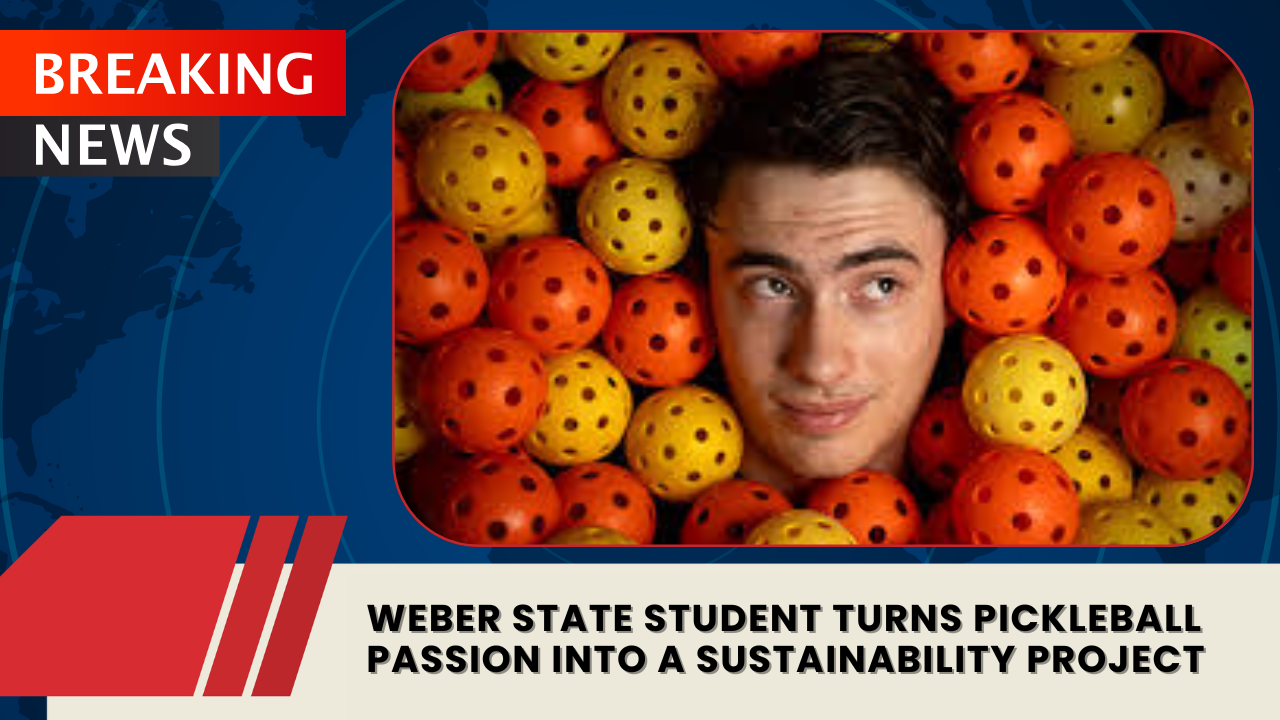A Weber State University mechanical engineering student is making waves in the world of pickleball — and sustainability — by turning recycled plastics into playable equipment.
Tackling Plastic Waste Through Pickleball
As pickleball’s popularity skyrockets across Utah, Parker Libby is working to make the sport more environmentally friendly. Over the past three years, the game’s player base has surged by 300%, creating a surprising new source of plastic waste.
“Around 500 million pickleballs are made each year,” Libby explained. “That’s enough to fill about 40 Olympic-sized swimming pools. If we could use even 50% recycled plastic, we could save roughly 6,000 tons of plastic from landfills annually.”
Globally, an estimated 380 million tons of plastic are produced each year, but only about 11 million tons are ever reused.
Local Enthusiasm for a Greener Game
Utah pickleball players are embracing the idea.
“Knowing that something from your recycling bin could become a pickleball is just super cool,” said Ogden resident Jackson Carlson.
“It’s great to think junk from your house could be turned into something useful for a sport,” added Daxton Carlson.
Engineering the Perfect Recycled Pickleball
Libby is collaborating with Weber State professor Rand Hurd to find the right balance between sustainability and performance.
“We can use as much recycled plastic as we want when forming the pickleball,” Libby said. “But if we use 100% recycled material, it might not bounce as well or last as long. So we’re testing to find the sweet spot.”
He’s currently developing a mold and production process to test various material mixes, aiming to produce a tournament-quality recycled pickleball before graduation.
The Bigger Picture
While the project represents just a small dent in the global plastics problem, it highlights how student innovation and local action can drive meaningful change — one recycled pickleball at a time.



